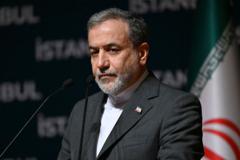Has Iran's Foreign Minister Acknowledged Significant Damage to Nuclear Sites?

Understanding the Recent Developments in Iran's Nuclear Situation
The geopolitical landscape surrounding Iran's nuclear program has become increasingly complex following the recent bombings by the United States and Israel. With contrasting narratives emerging from Iranian officials and the US administration, the situation demands a comprehensive analysis. This article delves into the implications of these events on Iran's nuclear ambitions, diplomatic relations, and the broader Middle Eastern dynamics.
The Impact of Recent Bombings
In a significant admission, Iran's Foreign Minister Abbas Araghchi acknowledged "excessive and serious" damage inflicted on the country's nuclear sites following the US and Israeli airstrikes. His statement underscores the gravity of the situation, prompting a review by the Atomic Energy Organisation of Iran. This development raises eyebrows, especially in light of Iran's Supreme Leader Ayatollah Ali Khamenei's earlier claims that the strikes had not disrupted the nuclear program. The contrasting perspectives highlight the internal and external pressures Iran faces as it navigates its nuclear aspirations.
The Damage Assessment
Araghchi's remarks indicate that the bombings may have had a more substantial impact than previously suggested by Iranian leadership. The assessment process currently underway aims to determine the full scope of the damage. This situation presents a critical juncture for Iran, as the outcome of the assessment could influence its future nuclear endeavors and diplomatic negotiations.
Khamenei’s Response to the Strikes
Khamenei's response to the strikes was one of defiance. He dismissed President Trump's assertion that the bombings "totally obliterated" Iranian nuclear sites, arguing that they had failed to achieve any significant results. This narrative of resilience is central to Khamenei's leadership, particularly as he remains in a position of power amidst ongoing conflict. His insistence that Iran has emerged victorious against the US and Israel serves to rally domestic support and maintain a united front in the face of external threats.
Diplomatic Implications
The recent military actions have led to a significant shift in Iran's diplomatic posture. Araghchi has made it clear that there are currently no plans to resume nuclear talks with the US. The cancellation of the sixth round of negotiations, which was scheduled just as Israel began its attacks, signals a cooling of relations and a potential departure from previous diplomatic efforts aimed at curbing Iran's nuclear ambitions.
Iran's Stance on Negotiations
In light of recent events, Iran's government is reassessing its approach to diplomacy. Araghchi emphasized that any future discussions would consider what is in the "interest of the Iranian people," hinting at a potential pivot in Iran's negotiation strategies. This new form of diplomacy may involve more assertive positions, especially given the perceived aggression from the US and Israel.
Potential US Incentives
In an effort to coax Iran back to the negotiating table, the Trump administration has floated the idea of providing substantial financial assistance for a civilian-energy-producing nuclear program. The proposed $30 billion could potentially ease sanctions and unlock billions of dollars in restricted Iranian funds. However, the recent escalation of violence complicates these diplomatic overtures, casting doubt on the feasibility of such arrangements.
Legislative Actions and International Relations
Compounding the tensions, Iran's parliament has approved a bill that could halt cooperation with the International Atomic Energy Agency (IAEA). This legislative move, if enacted, would signal a serious commitment from Iran to restrict access to its nuclear sites for international inspectors. Such a step could exacerbate existing tensions in the region and further isolate Iran on the global stage.
Israel’s Justification for Military Action
Israel has justified its military actions as necessary to counter what it perceives as Iran's ambitions to develop nuclear weapons. This narrative has been a cornerstone of Israeli foreign policy, framing Iran as a significant threat to regional stability. The Israeli government argues that its offensive actions are preemptive measures aimed at neutralizing potential threats before they materialize.
Iran's Defense of Its Nuclear Program
In stark contrast to Israel's claims, Iran has consistently maintained that its nuclear program is intended solely for peaceful, civilian purposes. This assertion is integral to Iran's narrative, as it seeks to dispel fears of an imminent nuclear threat. However, the recent bombings and the resulting damage to nuclear facilities have raised questions about the true nature of Iran's ambitions.
US Involvement and Military Assessment
The US military's involvement escalated dramatically over the past few weeks, with strikes targeting key facilities in Fordo, Natanz, and Isfahan. US Defense Secretary Pete Hegseth stated that intelligence indicated these strikes "significantly damaged" Iran's nuclear capabilities, potentially delaying its progress by years. However, a leaked preliminary Pentagon assessment downplayed the damage, suggesting that the strikes might only set back Iran's program by a few months. This discrepancy between official statements and leaked intelligence underscores the complexities of military assessments in conflict situations.
Casualties of Conflict
The human cost of this conflict cannot be overlooked. Iran's health ministry reported that 610 people were killed during the 12 days of Israeli airstrikes, with Israeli authorities indicating 28 casualties on their side. These figures highlight the tragic consequences of military actions and the urgent need for a diplomatic resolution to prevent further loss of life.
The Future of Iran's Nuclear Program
The future of Iran's nuclear program remains uncertain as the country grapples with internal assessments, external pressures, and evolving diplomatic relations. The conflicting narratives from Iranian officials and the US administration point to a complex interplay of power dynamics that could shape the region's future.
Strategic Considerations for Iran
As Iran evaluates its next steps, several strategic considerations come into play:
- Domestic Stability: Maintaining internal support amidst external pressures will be crucial for the Iranian government. A strong narrative of resilience can help rally public opinion.
- International Relations: Navigating relationships with global powers, especially in light of US sanctions, will require a nuanced approach that balances assertiveness with diplomacy.
- Nuclear Ambitions: The future of Iran's nuclear program will depend on the outcomes of damage assessments and the potential for renewed negotiations.
Conclusion
The recent bombings have not only affected Iran's nuclear sites but have also triggered a reevaluation of the country's diplomatic strategies and international relationships. As the situation unfolds, it is imperative for all parties involved to seek a path toward de-escalation and dialogue to prevent further conflict.
In what ways do you think Iran's approach to diplomacy will evolve in response to these challenges? #IranNuclear #DiplomaticRelations #MiddleEastConflict
FAQs
What damage was caused to Iran's nuclear sites by the recent bombings?
Iran's Foreign Minister has acknowledged "excessive and serious" damage to the country's nuclear facilities, prompting an assessment by the Atomic Energy Organisation of Iran.
Is Iran planning to resume nuclear talks with the US?
No, Iran has stated that there are currently no plans to resume negotiations with the US following the recent military actions.
What legislative actions has Iran taken regarding international cooperation?
Iran's parliament has approved a bill that could halt cooperation with the International Atomic Energy Agency (IAEA), potentially restricting access to its nuclear sites for international inspectors.
What is Israel's justification for its military actions against Iran?
Israel claims its military actions are necessary to thwart Iranian plans to develop nuclear weapons, framing Iran as a significant threat to regional stability.
What are the potential implications of the US military's involvement in the conflict?
The US military's involvement could escalate tensions further and complicate diplomatic efforts while affecting the trajectory of Iran's nuclear program.
Published: 2025-06-27 12:05:09 | Category: world



